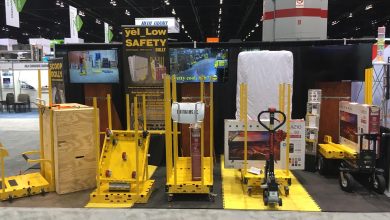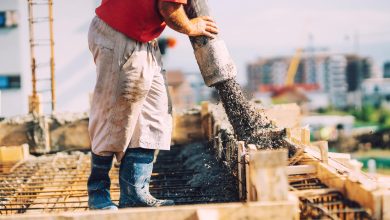Dallas, the third-largest city in Texas, is a dynamic metropolis known for its rich cultural heritage, booming economy, and diverse communities. It is a place where history meets innovation, offering a unique experience to residents and visitors alike. From its early days as a trading post to becoming one of the most prominent cities in the United States, Dallas has evolved into a vibrant hub of business, art, entertainment, and technology.
Historical Roots
The history of Dallas dates back to the early 19th century. Founded in 1841, the city began as a modest settlement near the Trinity River. Its central location made it a critical stop for trading routes, and it eventually became a hub for commerce and transportation. The arrival of the railroads in the late 19th century transformed Dallas into a major economic center, particularly in the cotton and cattle industries.
One of the pivotal moments in Dallas’ history was the assassination of President John F. Kennedy in 1963. The tragic event, which took place at Dealey Plaza, left a lasting impact on the city’s reputation. Today, the Sixth Floor Museum at Dealey Plaza commemorates that fateful day, drawing visitors from all over the world who want to learn more about this critical chapter in American history.
A Thriving Economy
Dallas is home to a diverse and robust economy. It is a significant player in various sectors, including technology, finance, healthcare, and telecommunications. The Dallas-Fort Worth Metroplex, one of the fastest-growing regions in the country, hosts the headquarters of many Fortune 500 companies, such as AT&T, ExxonMobil, and American Airlines. This concentration of major corporations has earned Dallas a reputation as a business-friendly city, attracting entrepreneurs, startups, and established businesses alike.
The city’s tech industry, in particular, has seen rapid growth. Often referred to as “Silicon Prairie,” Dallas has become a tech innovation hub, with a strong focus on data centers, cloud computing, and telecommunications. The city’s tech scene has been bolstered by a highly skilled workforce, a favorable business climate, and a growing network of venture capital firms supporting startups and emerging technologies.
Cultural and Artistic Landscape
Dallas is not only a business powerhouse but also a cultural gem. The city boasts a thriving arts and cultural scene that reflects its diverse population. The Arts District in downtown Dallas is the largest urban arts district in the United States, spanning 68 acres and featuring world-class museums, galleries, and performance venues. Notable institutions include the Dallas Museum of Art, the Nasher Sculpture Center, and the Meyerson Symphony Center, home to the Dallas Symphony Orchestra.
In addition to high culture, Dallas is known for its contributions to popular culture. The city’s influence on television is particularly notable with the long-running hit show Dallas, which aired from 1978 to 1991. The series, known for its dramatic portrayal of a wealthy Texan family, helped to cement Dallas’ image in the national consciousness.
Moreover, the city’s music scene is rich and varied, spanning genres from blues and jazz to country and rock. Deep Ellum, a historic neighborhood just east of downtown, is the epicenter of Dallas’ live music culture. This area has been a breeding ground for musicians for decades, hosting legendary performers like Blind Lemon Jefferson and contemporary artists alike.
Sports and Entertainment
Sports play a significant role in Dallas’ identity. The city is home to several major professional sports teams, including the Dallas Cowboys (NFL), the Dallas Mavericks (NBA), the Texas Rangers (MLB), and FC Dallas (MLS). The Cowboys, in particular, hold a special place in the hearts of locals, earning the nickname “America’s Team” due to their widespread popularity. AT&T Stadium in nearby Arlington, where the Cowboys play, is an architectural marvel and one of the largest domed structures in the world.
The city’s passion for sports extends beyond professional teams. Dallas also hosts numerous collegiate events, golf tournaments, and rodeos, reflecting the state’s deep-rooted tradition of competitive sports.
Culinary Delights
Dallas’ culinary scene is a reflection of its diverse population and rich history. While the city is perhaps best known for its barbecue and Tex-Mex cuisine, its dining options extend far beyond these staples. Dallas is home to a growing number of award-winning restaurants, offering everything from fine dining to global street food.
The city’s food culture is also shaped by its vibrant immigrant communities. Neighborhoods like Koreatown, Little Mexico, and the Asian Trade District are havens for food lovers, offering authentic cuisine from around the world. Whether it’s the smoky flavors of Texas barbecue, the spicy kick of enchiladas, or the delicate flavors of sushi, Dallas’ culinary scene is a testament to the city’s multicultural makeup.
Future Prospects
As Dallas continues to grow and evolve, the city is positioning itself as a leader in sustainability, innovation, and urban development. Major infrastructure projects, such as the development of high-speed rail connecting Dallas to Houston, reflect the city’s forward-thinking approach to transportation and growth.
Dallas is also making strides in environmental sustainability. Initiatives like the Dallas Green Building Program and investments in renewable energy sources are part of the city’s broader efforts to reduce its carbon footprint and ensure a sustainable future for its residents.
Conclusion
Dallas is a city of contrasts and opportunities, where traditional Southern hospitality meets modern innovation. Its rich history, thriving economy, cultural diversity, and forward-looking mindset make it one of the most exciting cities in the United States. Whether you are interested in art, business, sports, or food, Dallas offers something for everyone, making it a place where people come to live, work, and experience the best of what Texas has to offer.





